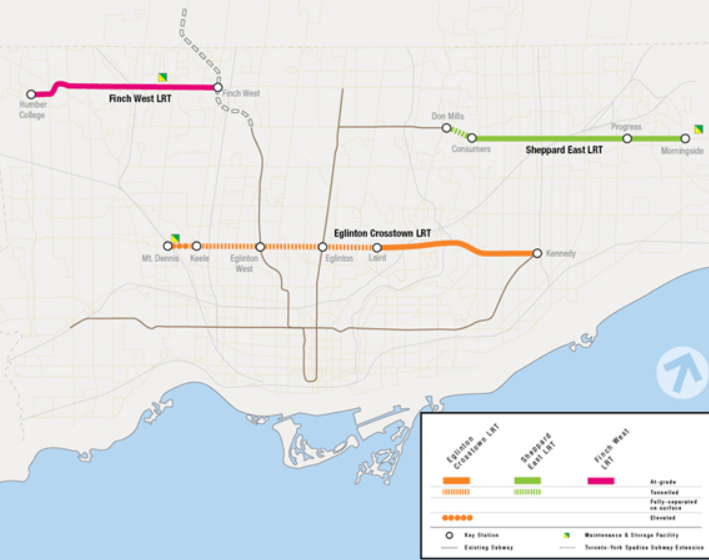In a key decision that could have derailed SmartTrack, Toronto’s city council voted to approve a massive funding plan that would fuel billions worth of transit projects in the coming years, principle among them is John Tory’s SmartTrack.

A staff report revealed the project would cost around $7 billion, which includes the cost of building and upgrading the Regional Express Rail (RER) infrastructure that SmartTrack would run on.
READ MORE: Ontario reaches agreement on $7B transit funding plan for Toronto
The province has committed to paying for $3.7 billion of this, while Toronto is on the hook for about $2.01 billion. This could require a property tax increase of between 2.1 to 3.9 per cent according to city staff.
“There should be a plebiscite introduced today and nothing should happen,” said right-leaning councillor Giorgio Mammoliti, one of the most vocal critics of the funding strategy.
“We do not have the money; we do not have they money. The city has no money.”
Others from the left said the current version of SmartTrack is a shell of its former self and will serve mainly commuters in the “905.”
“We were promised a surface subway at TTC fares with 22 stations. What we’ve got here before us, is we’re being asked to pay part of the cost of six GO stations,” said Coun. Gord Perks.
The scale of SmartTrack has shrunken from what was first proposed. It now consists of six new stations added to the province’s RER network. The western-most portion is an LRT extension of the Eglinton Crosstown.

Get breaking National news
But the mayor defended the vision, saying residents have told him they’re eager to see shovels in the ground pointing to progress that will ease gridlock.
“The number one thing they want me to do is ease the strangulation that has taken place in this city as a result of traffic congestion and the number one way you can do that is build public transportation,” he told reporters at an afternoon press conference.
The mayor also stood firm in his resolve to not raise property taxes above the rate of inflation. “There are other options. We don’t have to rely on property taxes nor do I think we should,” he said.
In the coming weeks, a city staff report will outline a number of revenue tools that could be implemented to raise money to fund Toronto’s transit future — things like fees, levies and additional taxes.
Another major component of the transit funding strategy had to do with the city’s LRT network.
The province has committed to paying for four LRT lines which include the Eglinton Crosstown, Finch West, Sheppard East and Eglinton East, but the city would pay to operate and maintain them.

- Danielle Smith says Alberta will withhold funding for judges without more input on selection
- Canada expects U.S. to stay out of domestic affairs: national security official
- Harper and Chretien talk Alberta separatism, Canadian sovereignty in Ottawa
- MP Nate Erskine-Smith ‘exploring’ Ontario Liberal leadership, seeks seat
The gross cost of operating Toronto’s LRT network, including the Eglinton West LRT (SmartTrack), is estimated to be at least $214.6 million a year.
“This is completely unacceptable, it moves very few people for an awful lot of money,” Perks said of SmartTrack. “We have better priorities we could be investing in, like the Downtown Relief Line.”
But others on council supported much of the mayor’s vision and the financial blueprint to pay for it.
“The funds have to come from somewhere; and unfortunately, the money trees in Toronto are not bearing enough fruit,” said Coun. Michael Thompson.










Comments